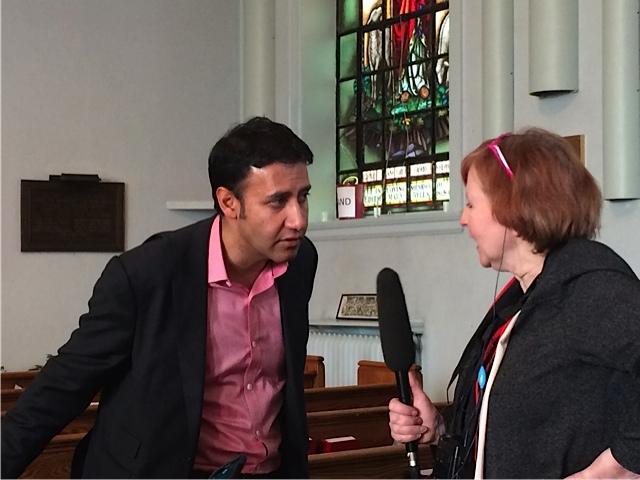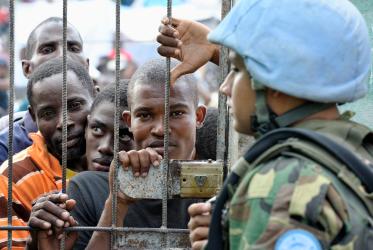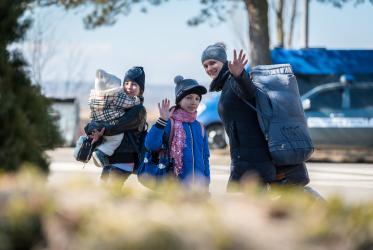By Kristine Greenaway*
Members of a small congregation in Toronto, Canada are celebrating. On Sunday the member of parliament for their riding came to the church to announce that the federal government has granted residency status to a Roma family that had lived under “sanctuary” protection in the church for 18 months. The term “sanctuary” refers to an ancient tradition that people who have taken refuge inside a church cannot be removed by police.
Arif Virani, parliamentary secretary to Canada’s Minister of Immigration told the jubilant United Church of Canada congregation that the Pusuma family was now free to live in Canada.
“Advocacy works and you just proved it,” Virani declared.
The news was greeted with shouts of joy and prolonged applause. Representatives of the extensive Pusuma support network from Jewish, Muslim, Catholic, Anglican, and Christian Reform Church communities were present to share in the celebration.
The United Church of Canada is a member of the World Council of Churches (WCC) and active in WCC’s refugee rights and migrant support networks.
The Pusuma family – Jozsef, Timea, and their infant daughter Viktoria (known as Lulu) – fled their native Hungary after white supremacists attacked them with baseball bats in front of their home. Jozsef, who had been a volunteer with a human rights hotline investigating hate crimes in Hungary against Roma, sought refuge in Canada with his wife and daughter.
When their Canadian lawyer mishandled their application, the family was denied refugee status and slated for deportation. A Catholic refugee advocacy group working on behalf of the family issued an urgent appeal for a congregation to offer “sanctuary”. Windermere United Church agreed to take the family in.
Virani told the congregation that he himself had arrived in Canada in 1972 as a refugee from Uganda. When he heard of the Pusuma family’s plight prior to the country’s recent federal elections, he vowed to take on their case if he won a seat. He kept his promise, working with the country’s new minister of Immigration, John McCallum, to reopen the case.
It’s been a long struggle for the United Church congregation. The efforts of the citywide interfaith support network were crucial. The network raised funds for the family and launched a “Free Lulu” campaign that received wide media coverage. Meanwhile, the Pusuma family lived inside the church, using the parish kitchen and living in what had been the minister's office, converted into a tiny, one room apartment. Even though the family’s lawyer pleaded guilty to charges of professional misconduct by the Law Society of Upper Canada, the former minister of Immigration, Chris Alexander, refused to reopen the case. At that point, the Pusumas were forced to leave Canada as they saw no hope for their case. Lulu was ready to enter school and could not do so while living in sanctuary.
In December 2015, the congregation and support network purchased tickets for the family to fly to Germany to join family members who had also fled persecution in Hungary. However, government officials insisted on deporting them to Hungary. It was there that they received the news they could return to Canada.
In a heartfelt message to the family’s new lawyer, Andrew Brouwer, and to their many friends and supporters, Jozsef Pusuma wrote: “Thank you a million times”.
In her sermon, Rev. Alexa Gilmour told the congregation, “We have seen God’s light shining through the Pusumas’ story”. She concluded with a quote from anthropologist Margaret Mead: “Never doubt that a small group of thoughtful, committed citizens can change the world; indeed it's the only thing that ever has.”
WCC Member Churches in North America
*Kristine Greenaway is a former WCC communication director with extensive experience in covering stories about global and local ecumenism.







